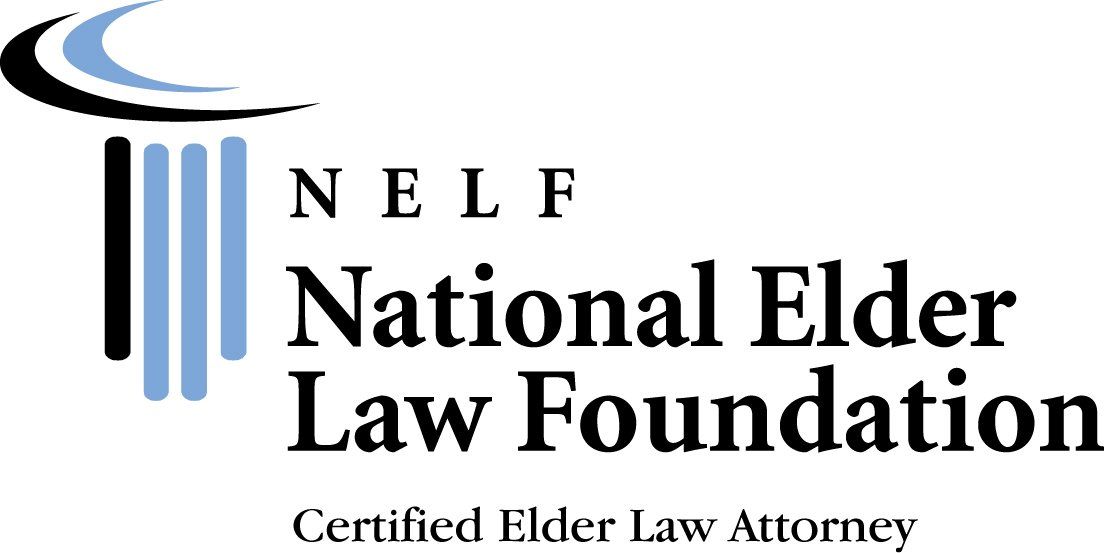Estate Medicaid Planning
Traditional Estate Planning and Plans for the Digital Age
You can make sure your traditional and digital assets pass to your heirs according to your wishes when you work with Daniel Jurkovic, Certified Elder Law Attorney. We'll help you establish the legal documents you need, such as a will, power of attorney, trusts, and others, to protect your assets. We can also help you prepare to receive Medicaid. To learn more, call us at 201-460-9888 or contact us online.
Last Will and Testament
A will is a document that directs who will receive your property at your death and it appoints a legal representative to carry out your wishes. It is critically important to understand that a will only pertains to property that is in your name alone when you die. It does not cover property held in joint tenancy or in a trust.

Power of Attorney
A power of attorney is a legal document by which you, the “principal,” designate another person, the “attorney-in-fact,” to act on your behalf in the event that you are unable to take care of your own affairs as a result of physical disability or mental incapacity. For example, through a power of attorney, you can authorize your representative to handle your banking, manage your investments, and pay your bills in the event you are unable to do these things yourself.
A power of attorney can provide for the handling of your affairs if a physical or mental condition prevents you from handling your financial affairs yourself. However, it does not take away any of your rights — only a court can take away your rights and must do so through a formal proceeding known as a guardianship proceeding. An attorney-in-fact simply has the power to act along with the principal.
An attorney-in-fact is answerable to the principal for willful misconduct, gross negligence, or acting in direct opposition to the principal’s explicit directions. A principal may revoke a power of attorney at any time. From the moment the attorney-in-fact receives the written revocation, he or she can no longer act under the Power of Attorney.

Trusts
A trust is a legal document that provides a way for someone to take care of assets, including money or property, for someone else. A trust is created by a "grantor," who may be the beneficiary or the parent of a beneficiary, another family member, or another interested person.
The "trustee" is the person named to be responsible for managing the trust fund for the benefit of someone else, the "beneficiary." For purposes of a discussion of supplemental needs trusts, the beneficiary is a person with a disability. The grantor may serve as trustee while alive or name someone else.
A living trust is an agreement where one person places property in the care of another. The property placed in the trust must be held under the terms and conditions in a written trust agreement. A living trust is created by a person while living. A trust created by a will is called a testamentary trust.
What Are the Benefits of a Living Trust?
- Management of assets during your lifetime. You can appoint yourself or someone else to be in charge of managing your property. You can (and should) name another person to have authority to take control over your property in the event of disability. This can avoid the cost and agony of family members obtaining guardianship.
- Avoid probate court upon your death. More assets will be available to your heirs. Avoid executor’s fees, attorney’s fees, and costs of administering your estate.
- With special planning, it can be used to protect your estate from depletion against the high cost of catastrophic illness and long-term care. Trusts can be revocable or irrevocable. There are different types of trusts for different estate planning objectives.
Types of Living Trusts
- Standby Trusts: Created with very little property at first. The purpose of this type of trust is to act as a “stand by” resource ready to accept transfers of assets in case of the onset of a disability. They are usually used in conjunction with a durable power of attorney.
- Irrevocable Life Insurance Trust: Can assist with the payment of estate taxes on estates that are subject to federal or state estate tax. These trusts require careful planning.
- Special Needs Trust or Supplemental Benefits Trusts: Provides protection of assets while preserving a person's right to qualify for government benefits. Once again, these trusts require careful planning.
- Revocable vs. Irrevocable Trusts: Irrevocable trusts cannot be revoked or “undone” by the settlor. They also have special tax treatment. Revocable trusts can be changed or amended. The distinction is critical and the full implications must be considered before placing property into a trust. Trusts are very useful as an estate planning tool for disabled adult children.

Estate Planning and Digital Assets
Digital assets (anything that's owned in a digital file) are everywhere — for example, email accounts, web pages, domain names, blogs, and social-media accounts. There's no uniformity among companies providing these services as to how they treat digital assets at an account holder's death. Each of the major online services plays by its own rules.
- Facebook addresses how profiles are handled after an account holder’s death through the Legacy Contacts feature. The Legacy Contacts feature allows users to specify in advance a caretaker for their account once they pass away. Once a profile is memorialized, a Legacy Contact is granted tools to help them manage the memorialized profile.
- Google, on the other hand, gives its users the option to set up an Inactive Account Manager, which allows the account holder to specify whether Google should delete the account, notify contacts, or share account data with designated individuals after an account holder hasn't signed in or responded to alerts for a designated timeout period.
- Microsoft has a next-of-kin policy that permits a third party with a “compelling need” to access a user’s account. To obtain appropriate legal permission for this access to a deceased or incapacitated user’s account, make an inquiry at msrecord@microsoft.com.
You can depend on Daniel Jurkovic, Certified Elder Law Attorney for comprehensive planning for your digital assets.
Fiduciary Access: I Advise clients to make a separate inventory of their digital assets, including how and where they're held, along with usernames and passwords. This list should be updated on a regular basis. Remember that wills and power of attorney documents should NOT contain personal identifiers. Also remember that sharing the use of an account holder's access information may violate many terms of service agreements. Alert clients to consider their email provider's policies.
In today's digital world, access to email is critical — a decedent's email account often has the information needed to collect assets and receivables, pay debts, manage a business, and wind up affairs. Emails in an employer's system might not be accessible as an employer might deny a family or fiduciary access to an employer-provided account for a number of reasons. Ensure that estate-planning documents properly address digital assets. The trust and estate lawyer's natural common assumption is that all digital assets behave and are legally treated just like real property, tangible and intangible assets. However, not all digital assets are transferable on death, depending on the nature of the digital asset and the terms of service agreement.
Powers of Attorney:
Clients should give their agents authority over digital accounts in the event of incapacity. It's important not only to include provisions for the disposition of digital assets with monetary or sentimental value but also to provide for the destruction or securing of digital assets the client wants kept secret. Further, if they are to be destroyed or accounts terminated, that direction should be accompanied by a corresponding exculpation provision.
Estate Administration: Personal representatives should be aware of digital assets and who controls them to determine if their disposition comports with the decedent's estate plan. Digital accounts are generally treated as any other asset for purposes of inheritance or trust law and issues such as access and descent should be decided under existing probate laws.
There are also a number of commercial services that attempt to reduce problems related to digital assets for survivors by allowing a decedent's beneficiaries or personal representative to show evidence of the decedent's death to only one provider, rather than each individual provider with which the decedent had an account. One example is E-Z-Safe.
The Digital Beyond maintains a list of online services
that are designed to help you plan for your digital death and afterlife or memorialize loved ones.
Protecting the Decedent's Identity: Personal representatives should take basic precautions against identity theft, including cancelling credit and charge accounts, sending copies of the death certificate to the three credit reporting bureaus, obtaining free credit reports from each credit bureau to ensure there was no post-death activity, as well as cancelling the decedent's driver's license and asking the issuer to refuse any requests for duplicates.
Call
201-460-9888
to Speak With Our Friendly Staff and Schedule
Your Appointment.
It's never too soon to plan for your future.
Trust Daniel Jurkovic, Certified Elder Law Attorney for legal counsel with
over 20 years of experience.

